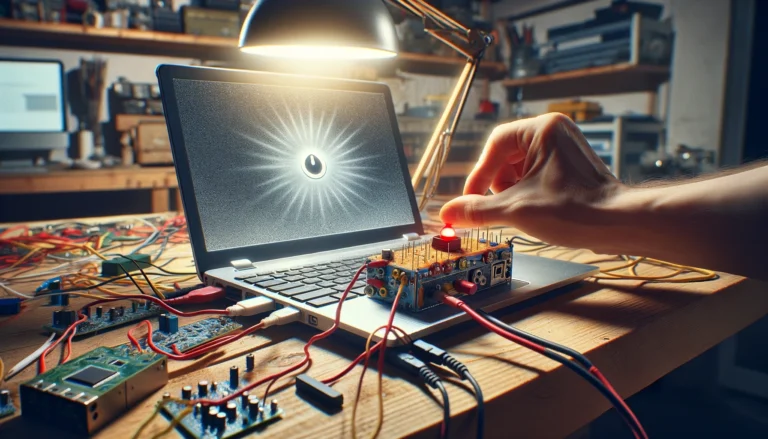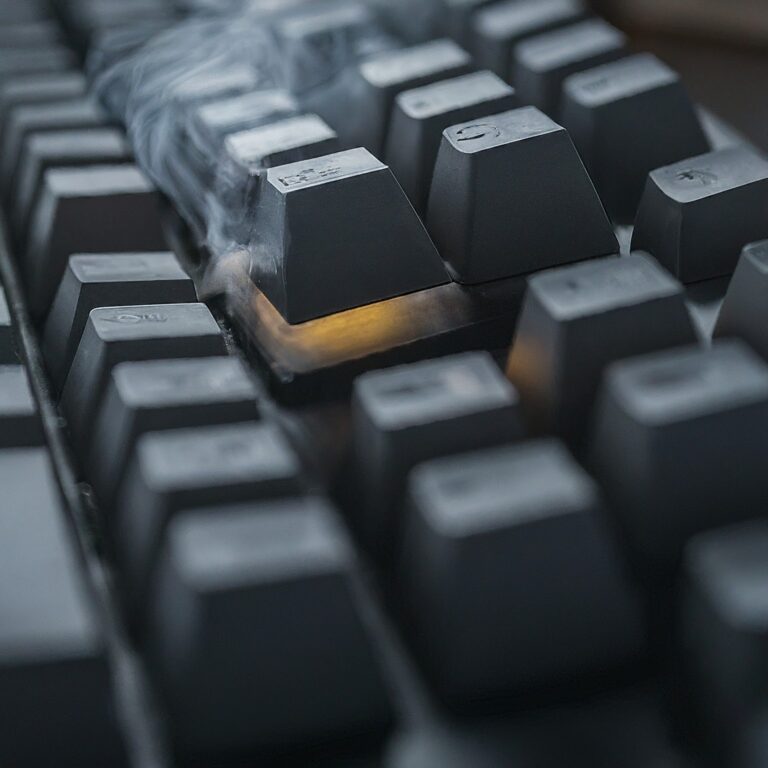If your computer is making beeping sounds, it’s trying to tell you something. These beeps can be a sign of a hardware or software problem. While some beeps are harmless, others can indicate a serious issue that needs to be addressed immediately. This comprehensive guide will help you troubleshoot and fix the most common computer beeping sounds.
1. Understanding Beep Codes
Computer beeps are often referred to as “beep codes”. Each beep code corresponds to a specific error message or issue. To understand what your computer is trying to tell you, you need to know the beep code pattern. Different motherboard manufacturers use different beep codes, so it’s important to consult your motherboard manual or the manufacturer’s website to find out what the beeps mean.
2. Common Beep Codes and Their Meanings
Here are some of the most common beep codes and their meanings:
- One short beep: This is usually a normal beep that indicates the computer is booting up properly.
- Two short beeps: This can indicate a problem with the video card or monitor.
- Three short beeps: This can indicate a problem with the RAM.
- Four short beeps: This can indicate a problem with the CPU.
- Five short beeps: This can indicate a problem with the motherboard.
3. Troubleshooting Beep Codes
If you hear a beep code that you don’t recognize, the first step is to try to isolate the problem. Here are some troubleshooting tips:
- Check the cables: Make sure all of the cables inside your computer are properly connected. Loose or disconnected cables can cause beeping sounds.
- Reseat the components: Sometimes, a component can become loose or dislodged. Try reseating the components one by one to see if that solves the problem.
- Update the BIOS: An outdated BIOS can sometimes cause beeping sounds. Updating the BIOS can fix this issue.
4. Fixing Hardware Problems
If you’ve tried troubleshooting the beep codes and you still can’t fix the problem, it’s possible that you have a hardware problem. Here are some of the most common hardware problems that can cause beeping sounds:
- Faulty RAM: Faulty RAM can cause a variety of problems, including beeping sounds.
- Faulty video card: A faulty video card can also cause beeping sounds. Try removing the video card and see if the beeps stop.
- Faulty motherboard: A faulty motherboard can cause a variety of problems, including beeping sounds.
5. Fixing Software Problems
In some cases, beeping sounds can be caused by software problems. Here are some of the most common software problems that can cause beeping sounds:
- Corrupted operating system: A corrupted operating system can cause a variety of problems, including beeping sounds.
- Outdated drivers: Outdated drivers can also cause beeping sounds. Try updating the drivers for your hardware components.
- Malware: Malware can also cause beeping sounds. Try scanning your computer for malware and removing any infections.
6. Seeking Professional Help
If you’ve tried all of the troubleshooting steps and you still can’t fix the beeping sounds, it’s time to seek professional help. A qualified computer technician can diagnose the problem and recommend a solution.
7. Preventing Beep Codes
The best way to prevent beep codes is to keep your computer well-maintained. Here are some tips for preventing beep codes:
- Keep your computer clean: Dust and dirt can cause problems with your computer’s hardware, so it’s important to keep it clean.
- Update your software: Keeping your software up to date can help prevent software problems that can cause beeping sounds.
- Back up your data: Regularly backing up your data can help protect you in case your computer fails.
Conclusion
Computer beeping sounds can be annoying and frustrating, but they’re usually a sign of a problem that needs to be addressed. By following the troubleshooting steps in this guide, you can identify and fix the source of the beeping sounds and get your computer back up and running properly.
FAQ
Q: Why is my computer beeping?
A: Computer beeps can be caused by a variety of hardware or software problems.
Q: What should I do if I hear a beep code?
A: The first step is to try to identify the beep code pattern. Once you know the beep code, you can look up its meaning in your motherboard manual or the manufacturer’s website.
Q: How can I fix beep codes?
A: The solution to a beep code depends on the underlying problem. Some beep codes can be fixed by troubleshooting the hardware or software, while others may require professional help.
Q: How can I prevent beep codes?
A: You can prevent beep codes by keeping your computer well-maintained, updating your software, and regularly backing up your data.
- Is It OK to Clean Laptop Keyboard With Wet Wipes? - March 19, 2024
- How Long Does it Take For a Completely Dead Laptop to Charge? - March 18, 2024
- How Do You Fix a Computer That Won’t Turn on But Has Power? - March 18, 2024






